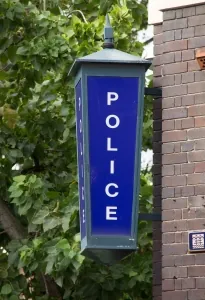When a law enforcement officer suspects that you may be impaired by drugs or alcohol, you may be asked to submit to a standardized field sobriety test (SFST). These tests are designed to evaluate your divided attention, or the ability to multi-task. Standard tests include a Rhomberg modified test; a one-leg stand test; a finger-to-nose test; a finger county test; and the horizontal gaze nystagmus (HGN) test. 
Field sobriety tests may be used to help police determine if you should be subject to further testing for impairment or if you should be arrested. Unfortunately, the tests are not reliable in all cases. If you take and fail the test, this also provides prosecutors with additional evidence to use against you in court.
Because of the risks of false positives as well as the danger that the test will be used against you, you may wish to decline to take a field sobriety test. Of course, the refusal can also be used in court. You will need to be able to explain to a judge or jury why you declined the test, and an experienced Omaha DUI lawyer can help. Contact the Petersen Law Office today at (402) 513-2180 to learn more about your options and to schedule a free consultation with an experienced DUI defense lawyer.
What to do If You are Asked to Take a Field Sobriety Test
A law enforcement officer may ask you to submit to a field sobriety test only if he has reasonable cause. If a police officer pulls you over for a problem unrelated to drunk driving and asks you to take a FST without justification, this is a potential violation of your Fourth Amendment rights. Evidence collected by the officer in violation of your constitutional rights may not be used against you in court.
The question of whether evidence can be admitted in court will become important if you are arrested. Your attorney can petition the court to have the evidence suppressed and not used against you. However, at the time when the officer asks you to take the test, you will still need to make the choice: either agree or politely decline.
If you are asked to take a field sobriety test, you can agree to undergo the test if you are sober and you believe that you will pass. You are not legally required to take a SFST, but if you refuse then you likely will be asked to undergo a blood alcohol content test. A prosecutor could also argue that you refused because you were afraid the test would reveal your intoxication.
If you are arrested and your case goes to court, you will need to have a credible reason for your refusal to take the test. A DUI lawyer can help you to explain why you declined an SFST. It is often easier to explain a refusal to take a sobriety test than it is to explain why you failed the test.
If you suspect you may be intoxicated or that you will not pass an SFST, then you can politely decline to submit to the testing. There are many possible reasons why a person may fail a field sobriety test including a lack of coordination or medical conditions that affect balance. A failure to pass the field sobriety test will be used against you, leaving you to explain to a jury why you could not pass. Often, there is video taken of the test, which will also be shown in court. As a result, taking the test can be risky.
If you decline when asked to take a field sobriety test, the officer may decide to test your blood alcohol concentration (BAC). You may refuse a field breathalyzer test but you do have to submit to some type of testing as a result of implied consent laws in Nebraska.
An experienced Omaha DUI lawyer can evaluate your situation and help you to decide how to respond to drunk driving charges and deal with evidence against you. Call the Peterson Law Office at (402) 513-2180 or contact us online to schedule a free consultation.

